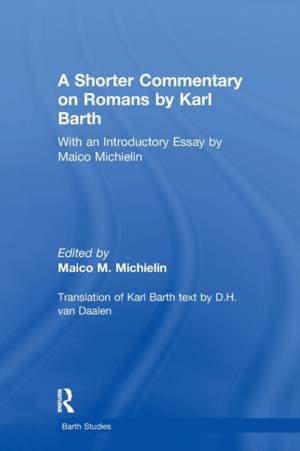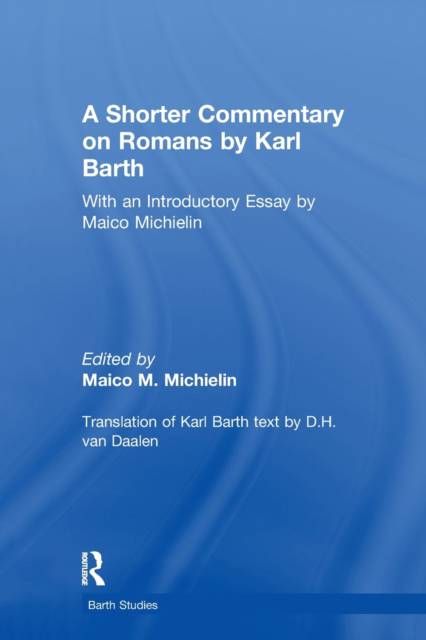
- Retrait gratuit dans votre magasin Club
- 7.000.000 titres dans notre catalogue
- Payer en toute sécurité
- Toujours un magasin près de chez vous
- Retrait gratuit dans votre magasin Club
- 7.000.000 titres dans notre catalogue
- Payer en toute sécurité
- Toujours un magasin près de chez vous
A Shorter Commentary on Romans by Karl Barth
With an Introductory Essay by Maico Michielin
Maico M Michielin
72,95 €
+ 145 points
Description
First published in 1959, Karl Barth's A Shorter Commentary on Romans originated as the manuscript for a course of extra-mural lectures held in Basle during the winter of 1940-41. During this time, Barth continued to resist the Nazi regime and its influence on the Reformed Church as he did when he was in Bonn. This reissue of Barth's A Shorter Commentary on Romans links to the renewed interest today in a 'theological' interpretation of Scripture. In response to the modern preoccupation with what lies behind the text (the author's context), and to a postmodern preoccupation with what lies in front of the text (the reader's context), both theologians and biblical scholars are asking the following questions: 'What is the relationship between the biblical text, interpreter and God?' 'Can the Bible be read both as an historical document and as a text that speaks to us today, and if so, how can it do so?' Barth's commentarial practice as exemplified in A Shorter Commentary on Romans answers these questions. This book is presented in two parts: first, an introduction by Maico Michielin helping readers understand Barth's theological exegetical approach to interpreting Scripture and showing readers how to let Scripture address theological and ethical concerns for today; the main body of the book then follows - the republication of the original English translation by D.H. van Daalen of Barth's A Shorter Commentary on Romans.
Spécifications
Parties prenantes
- Auteur(s) :
- Editeur:
Contenu
- Nombre de pages :
- 148
- Langue:
- Anglais
- Collection :
Caractéristiques
- EAN:
- 9781138265288
- Date de parution :
- 27-02-17
- Format:
- Livre broché
- Format numérique:
- Trade paperback (VS)
- Dimensions :
- 156 mm x 234 mm
- Poids :
- 217 g







